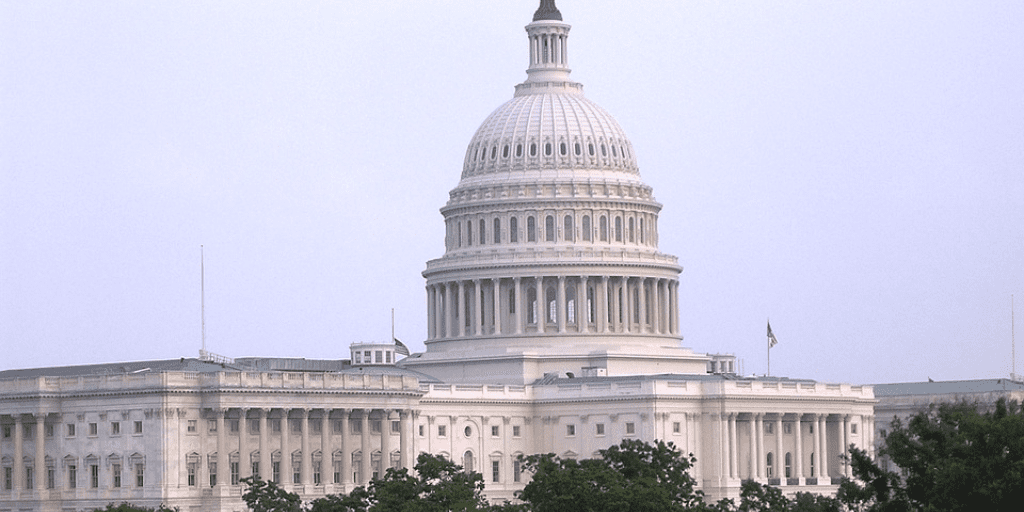Ivan Adler explains what’s keeping lobbyists busy despite the upcoming congressional summer recess.
By Kate Ackley | May 3, 2016
With official Washington riven by distrust and partisan strife, and with Congress set to spend most of its summer campaigning, this year was shaping up to be a particularly slow one for lobbyists.
But the anti-establishment fervor coming from the political right and left combined with anxiety over the post-election landscape are keeping the denizens of K Street very occupied. And special interests are watching a handful of issues that haven’t quite been squeezed off the agenda by time constraints.
Joshua Lamel, a vice president with BGR Government Affairs, said April was his busiest month in two years. His clients are monitoring Puerto Rico’s debt crisis, a possible overhaul of sentencing laws, an electronic privacy bill and green energy tax incentives.
More broadly, business interests are trying to comprehend a political environment where GOP presidential front-runner Donald Trump and Democratic candidate Sen. Bernie Sanders have turned their ire on corporate priorities.
“That’s creating a lot more work than past campaign seasons because clients are trying to make sense of the unusual primary season,” Lamel said. “It’s unprecedented territory.”
Besides hand-holding, K Street denizens say they have found plenty of work offering guidance on congressional Republicans’ goal of completing work on all individual appropriations bills, though that may yet unravel. Lobbyists stand ready to pick up that work, or anything left on the agenda, in a lame-duck session.
The final months of the Obama administration also offer business opportunities as clients battle 11th-hour labor, environmental, financial and health care regulations.
“Regulators don’t respect the recess,” said John Scofield, a partner at S-3 Public Affairs. “There’s a final push with this administration to put a period at the end of the regulatory agenda, and I have a lot of clients who are opposed to that.”
Scofield’s registered clients include McGraw Hill Financial, the National Rifle Association’s Institute for Legislative Action, Google, JP Morgan Chase and the Alzheimer’s Association, among others.
“For me, and for our firm, this is our busy season,” he said last week after enduring part of a markup of the House defense policy bill until 2:30 in the morning.
Scofield’s firm and others are also hosting events at both major party conventions in July.
“I’m thinking about going to the Republican convention because I’ve never seen a train wreck before,” cracked former Sen. John Breaux who co-chairs the public policy practice at Squire Patton Boggs. “It’ll be from a safe distance, but I want to stay close enough so I can hear it.”
The Louisiana Democrat said he expects much of his immediate business before Congress to peter out, but international clients and others increasingly need advice to help sort out 2017. He’s on the hunt for new clients, he said.
“They want to know if we have a Democratic Senate and a Democratic president what issues will be important,” Breaux said. “If Trump’s president — I don’t think that’s going to happen — … they want to line up the agenda.”
Foreign and domestic clients are puzzling over Trump’s rise and have specific concerns, such as whether he would try to change free trade agreements.
“Trade seems to be one of Trump’s top issues and could be something he leads with should he become elected,” said Chris Lamond of Thorn Run Partners, which saw revenue increase by 15 percent in the first quarter of this year and has hired a new lobbyist. “We’re trying to think through how that might impact agreements that our clients care about.”
Lamond, a Republican, and his Democratic business partner Andy Rosenberg said health care and financial services regulatory work remain robust. “There’s a real push to get guidance and rules out while they can,” said Rosenberg, whose clients include pharmaceutical giant Novartis. “Then there’s a push on our part to anticipate those and to support or thwart those efforts.”
K Street headhunter Ivan Adler of the McCormick Group said some companies, especially in the health sector, are looking to add lobbyists. The Senate is working on a package to increase funding for biomedical research, and Congress is also searching for ways to address opioid abuse and respond to the Zika virus outbreak.
Corporate players, he added, have also begun assessing their lineup of lobbyists in preparation for any election outcome


